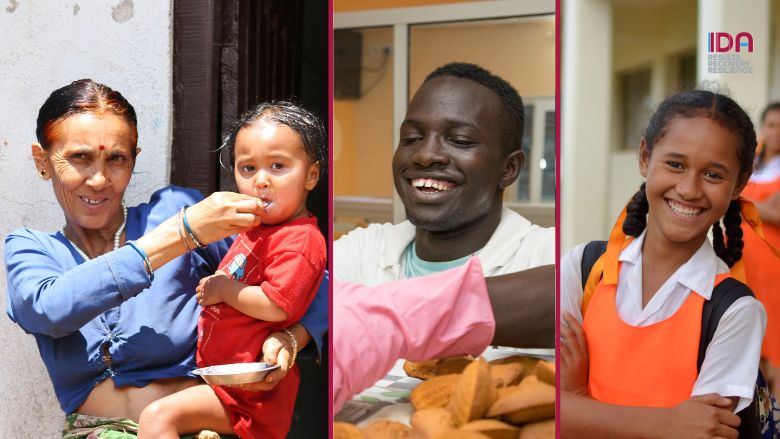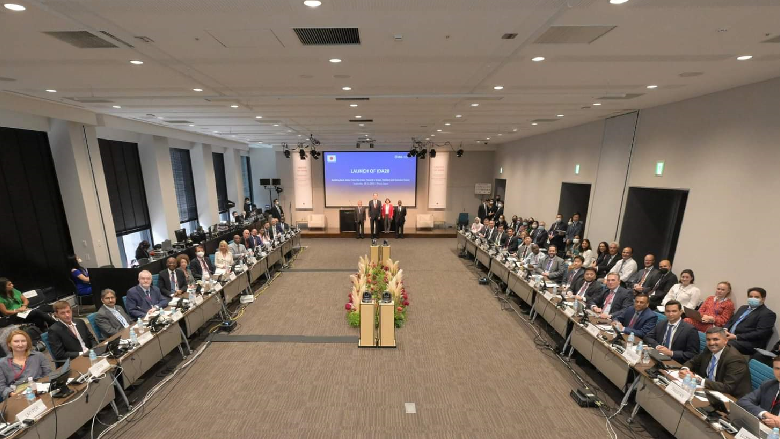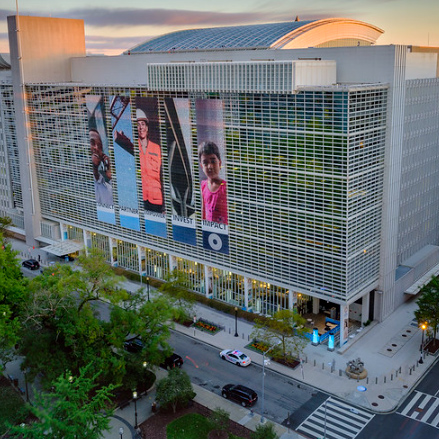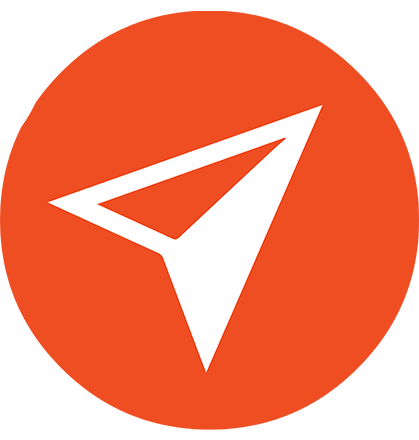Meet the International Development Association (IDA), the arm of the World Bank that helps the world’s poorest countries—75 to be exact. It’s the largest single source of donor funds for basic services in these countries and aims to eliminate extreme poverty. IDA’s most recent replenishment, IDA20, resulted in a historic $93 billion financing package for IDA countries for fiscal years 2022-2025.
On this episode of The Development Podcast, we explore how IDA works across the world on a range of key development issues and priorities, with the help of some key partners. Join us as we speak with Dirk Reinermann, the World Bank’s Director of Development Finance who oversees IDA, Gregory Chen, Managing Director for the Ultra-Poor Graduation Initiative, within BRAC International, and Maaria Henry, a Fisheries Protection Officer from the Republic of Kiribati in Micronesia, which sits at the forefront of the climate challenge.
Tell us what you think of our podcast here >>>. We would love to hear from you!
Featured Voices
- Dirk Reinermann, Director, IDA Mobilization & IBRD Corporate Finance, World Bank
- Gregory Chen, Managing Director, Ultra-Poor Graduation Initiative, BRAC International
- Maaria Henry, Fisheries Protection Officer from Kiribati
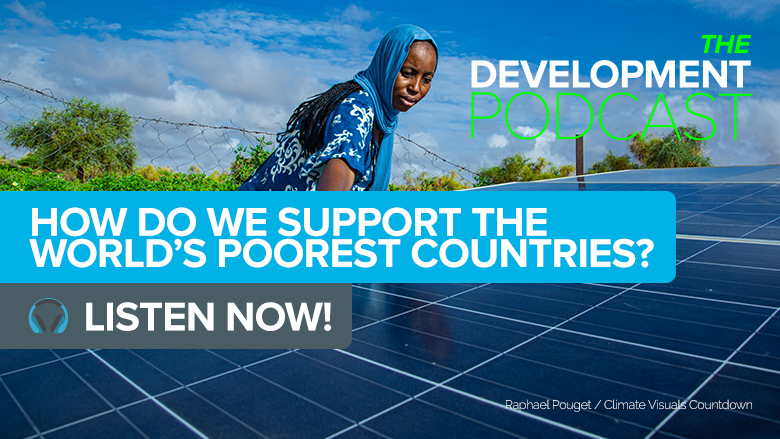
Transcript
[00:00] Raka Banerjee: Hello and welcome to The Development Podcast from the World Bank, coming to you from Washington, DC and beyond. I'm Raka Banerjee.
Srimathi Sridhar: And I'm Srimathi Sridhar. This episode is all about supporting the world's poorest countries as we face the ongoing challenge of multiple crises.
Raka Banerjee: That's right. Today we are taking you on a deep dive into a part of the World Bank called IDA, the International Development Association.
Srimathi Sridhar: We'll be honing in on how IDA works, where and why.
Dirk Reinermann: There's the climate crisis. We obviously have just lived through a global pandemic. We have food insecurity on the rise. We have lots of debt issues. All of those crises impact the poorest countries, the worst. What we're doing with IDA is basically responding to those crises and trying to help our countries overcome them.
Raka Banerjee: We'll also get an insight into some of the partnerships and projects at the heart of the organization from Bangladesh.
Gregory Chen: Bangladesh is in the process of transitioning out of the use of IDA funds 50 plus years on. So development happens.
Srimathi Sridhar: To the shores of a Pacific Island nation. The Republic of Kiribati.
Maaria Henry: Women are not only born to be housewives. For me, I want to encourage all the women out there to get out from their comfort zone, chase their dreams.
Raka Banerjee: All that and more coming up on The Development Podcast from the World Bank.
Srimathi Sridhar: Climate change, pandemics, fragility, food insecurity, these intertwined crises pose significant challenges to the developing world. Low-income countries are particularly vulnerable, and their recovery from COVID-19 has been slow.
Raka Banerjee: That's right, Sri. And in general, their high levels of debt combined with varying degrees of fragility, makes their populations vulnerable to further shocks, particularly given that their social safety nets are weaker.
Srimathi Sridhar: In a few moments, we'll dive in and explore what action the World Bank is taking to support the most in need countries and guide you through those three key letters, I, D, A. IDA, short for the International Development Association.
[02:25] Raka Banerjee: But first, let's get a snapshot of one young woman's life in the Republic of Kiribati.
Srimathi Sridhar: Kiribati is at the forefront of the climate challenge.
Raka Banerjee: IDA helps to support climate resilience in countries like Kiribati and job prospects too.
Srimathi Sridhar: Our producer, Sarah Treanor found out more.
Sarah Treanor: The sounds of Pacific Ocean waves beating on the shores of the tiny atoll that makes up Tarawa, the capital of Kiribati. The sea both provides islanders with food to consume and sell. Fisheries make up over half of the country's GDP, but is also the biggest threat to their way of life. The islands are incredibly low-lying and vulnerable to rising sea levels. For young people, particularly women and girls, there can also be a lack of opportunity. But I spoke to one young woman who is leading the way, having studied marine science and now working with the community to ensure responsible use of fish stocks.
Maaria Henry: Hello everyone. My name is Maaria Henry, and I'm from Kiribati. Most of you probably wouldn't know where and how Kiribati looks like. So Kiribati is one of the least-developing countries in the Pacific, consisting of 33 atolls. I live in the main land called Tarawa, and it has a highest point of three meters above sea level with a population of a 100,000 people. Tarawa and the rest part of the islands are very small and narrow that you can see the ocean and lagoon at almost every places from the main road. You can see people, especially children swimming and men fishing.
From where I live, you can hear men singing on top of the coconut tree in an early morning and the sound of women's brooms sweeping outside their houses. So it's always noisy in the mornings. What I love the most about my country is that we are surrounded by the beautiful ocean that provides us with fresh fish every day. When I chose marine science, I felt a bit scared and nervous because a lot of people always tell me that marine science is not a job for women because it involves a lot of diving, farming, and going out to the sea. Sometimes I see myself not fit working for the fishery sector because I'm a woman. That doesn't stop me. I just focus with my studies.
Sarah Treanor: Maaria is part of a fisheries enforcement unit at the country's Ministry of Fisheries and Marine Resource Development. It was established only a couple of years ago. Financial support for this work in Kiribati came from the $74 million Pacific Islands Regional Oceanscape Program, which included 68 million from the World Bank's. IDA.
Maaria Henry: This unit deals a lot with assisting communities here on South Tarawa and in the outer islands as well. So we help them to develop their fisheries management plan, conducting catch monitoring surveys, establishment of marine protected areas. The best part I love about working here in this unit is traveling to the outer islands to conduct training on basic enforcement skills, also conducting awareness.
Sarah Treanor: Maaria says that attitudes towards women are slowly changing, and she's proud to be a part of the change.
Maaria Henry: So to me, women are not only born to be housewives. For me, I want to encourage all the women out there to get out from their comfort zone, chase their dreams, and make a better change for their family and their beloved country.
[06:46] Srimathi Sridhar: Thanks to Maaria for sharing her story with us and for taking us on a journey to the Pacific. It sounds so beautiful there, but is also at such high risk. Raka, can you tell me a little bit more now about IDA, how it was created, how it works? I mean, even as someone who's worked here at the World Bank for several years, it's still hard for me sometimes to remember what all the different parts of the World Bank are and also what they do.
Raka Banerjee: I know exactly what you mean. That's why it was kind of fun to do a deeper dive into different aspects of the World Bank this time. Founded in 1960, IDA is one of the five institutions that now make up the World Bank. So that's alongside the International Bank for Reconstruction and Development, IBRD. There's also IFC. That's the International Finance Corporation and MIGA, the bank's Multilateral Investment Guarantee Agency. And those last two work together to promote private sector investment and mitigate political risk. And finally, there's ICSID, the International Center for Settlement of Investment Disputes, which is sort of self-explanatory.
Srimathi Sridhar: I mean, that is quite a mouthful, but thanks for laying that all out. Now that you say it, I do know all those different parts of the World Bank, but can you break it down for people who might not be so familiar? What do these parts actually do?
Raka Banerjee: So the International Bank for Reconstruction and Development or IBRD is probably what the bank is most known for. It is the largest development bank in the world, and it's owned by its 189 member countries. It was actually the first part of the bank to exist. It was created in 1944 to help Europe rebuild after World War II, hence the International Bank for Reconstruction and Development. These days, it offers loans and advisory services to middle-income and creditworthy, low-income countries, and it also helps coordinate responses to regional and global challenges like climate change or the COVID pandemic.
Srimathi Sridhar: And the International Development Association that basically compliments the IBRD, right?
Raka Banerjee: Yeah, exactly. So that was established a little later in 1960, and it's the part of the bank that's supporting the poorest countries in the world. It's actually the single largest source of donor funds for basic services in these countries. And like the IBRD, it aims to eliminate extreme poverty. More than half of IDA countries receive all or half of their resources on grant terms, which they don't have to repay. Then there's access to something called concessional finance. That's loans provided at 0% or near 0% interest.
Srimathi Sridhar: Okay. This is all super helpful to know. Can you talk a little bit more now about where IDA gets its cash from?
Raka Banerjee: Yeah. IDA is funded by contributions from the governments of its member countries, the capital markets and World Bank resources. Donors meet every three years to replenish IDA resources and review its policy framework. The most recent replenishment of IDA's resources, the 20th, IDA20 was finalized in December, 2021, resulting in a historic $93 billion financing package for IDA countries for fiscal year's 2022 to 2025.
[09:51] Srimathi Sridhar: That's amazing. Thank you, Raka, and we'll hear a little bit more soon on how IDA's able to multiply those donations. But first, as with other parts of the World Bank, partnerships are vital to IDA. Gregory Chen is the managing director for the Ultra-Poor Graduation Initiative within BRAC International. Gregory joined me here in the studio in Washington DC, and I started by asking him about BRAC International's origins in Bangladesh.
Gregory Chen: So BRAC was founded in 1972 just at the birth of Bangladesh, and it must have been at about the same time or shortly thereafter that the World Bank also entered Bangladesh, a newly independent country. In the late 1990s, BRAC had been operating in Bangladesh for close to 30 years, and we had a broad-based development program. And Bangladesh, by the way, with the help of IDA and others, was actually starting to do better. We were starting to see many of the basic indicators, education, health, even per capita GDP, start to move in the right direction by the late 1990s.
What we realized at the time from research was that there were pockets of people being left out. So what was overall a very good story at the country level still meant that there were pockets of people left out. So the program that I lead now was redesigned late 1990s in Bangladesh as a package focused intensely on people who were left out of broader economic growth. And through testing and rigorous evaluation over the subsequent decade or more, the approach has proven itself to be highly impactful in very diverse environments, from Peru to Ethiopia to Ghana, Pakistan, India, in addition to the results remaining very strong in Bangladesh itself. And so the program I manage is about helping that program scale elsewhere outside Bangladesh.
Srimathi Sridhar: So at this crossroads of global development amid increasing needs in the poorest countries, where do you think IDA fits in?
Gregory Chen: Going back to the history in Bangladesh is that there really was no tax base in Bangladesh at independence. There was very little government capacity to solve the problems. BRAC saw the need to fill the gap, and IDA and the World Bank began to fill that gap on the government's side, especially augmenting the government's budget to do broad public works and development work across the country. Bangladesh is in the process of transitioning out of the use of IDA funds 50 plus years on. So development happens, and so we see a role for IDA funds in other very low-income countries and providing them the low-cost development financing they need to move up and out of poverty. And I can say from my own experience, having grown up in Bangladesh, in India in the '70s and '80s, development happens. When I go back today, it's a totally transformed world.
Srimathi Sridhar: I was curious to hear from you, do you have your own personal anecdote, or when you think about the work that you've done with BRAC, what gives you hope as you think about the future that lies ahead?
Gregory Chen: Well, from a personal anecdote would be going in and walking into the villages of Bangladesh with my parents in the 1970s, and to going back now and just seeing the transformation with your own real eyes over that timeframe. I mean, I would go to one anecdote. Very recently, my team, the UPGI team from BRAC, was back in Bangladesh last year, and we happened to run into a woman named Jorina, who is a figurehead in her community now. She's one of those who during Eid gives meat back to the rest of the villagers. Her kids are on to higher education, better things. She's got three or four income-earning businesses. She owns land, livestock, a small store.
But going back to 2005, she was destitute, in an abusive marriage. Her husband left her with several small children, and she's transformed her own life, not by the contributions of BRAC or the excessive generosity of BRAC. But she did come through our program, the graduation program in 2005 and has since been able to go on and meet the broader challenges of improving her own and her family's lives since then. There are frankly millions of stories like that in a place like Bangladesh. She's far from alone.
Raka Banerjee: Gregory Chen, thanks so much for coming to speak to us about this really fascinating and important work. That story of the mother in Bangladesh really hits home.
Srimathi Sridhar: It really does, doesn't it? And just a quick reminder, if you're listening in, do subscribe to the podcast wherever you get your podcasts from. And we do have a survey we'd love for you to take, which is accessible on your podcast platforms.
Raka Banerjee: Well, this has been such an interesting explainer. It's really amazing to hear from Maaria and from Gregory and joining the dots, so to speak, on how these kinds of partnerships and projects relate. But I would really love to get the inside view from IDA.
[15:21] Srimathi Sridhar: Well, Raka, you're in luck because to give us a big picture and put it all into context, I sat down in the studio with Dirk Reinermann. Dirk is the World Bank's director for Development Finance, and he oversees IDA.
Dirk Reinermann: Well, thanks for your interest in IDA. First of all, Sri, and the first thing I should say is IDA's priorities are the priorities of the countries that we serve. It's a demand-driven model. And if you look at what's out there facing them at the moment, there are these multiple crises that we face at the moment globally. There's the climate crisis. We obviously have just lived through a global pandemic. All of us, we have food insecurity on the rise. We have lots of debt issues and all of those crises impact the poorest countries the worst, but also the poorest people within those countries. What we're doing with IDA is basically responding to those crises and trying to help our countries overcome them. And I'm happy to say that IDA is the single largest source of financing, the single largest anti-poverty fund in the world, if you like. And it provides about $93 billion every three years, so it's a good chunk of money.
Srimathi Sridhar: It's amazing.
Dirk Reinermann: If we didn't have it, we'd have to invent it. IDA's helping these countries react to these crises, and as our president says, "Fight poverty and create a livable planet for everybody." We are a lender, so we provide debt finance, but we do it on financial terms that takes the debt situation into account. And we have what we call a traffic light system. So when you are in debt distress, meaning you're having difficulty serving your debt, then we consider you're a red-light country and we provide a 100% grants. So it's like going to your bank and saying, "Look, I'm a little bit in trouble right now. I lost my job. Could I get grants rather than loans?" Well, a normal bank wouldn't do that. But IDA does that for our countries because that's so difficult. When they're in a yellow light, meaning that they're close to that, at risk of going into debt distress. We provide half of the money in grants and half of the money in regular IDA, very concessional or very attractive cheap terms. And when you're green light, then you're managing your debt fine, and then we provide either on the regular concessional terms. So helping these countries over these global challenges with pretty significant financing and on terms that are really adjusted to their situation.
Srimathi Sridhar: We heard earlier in the show about IDA20, its historic $93 billion package for IDA countries. And I asked Dirk to tell me a little bit more about it.
Dirk Reinermann: So we launched it in '22 a year earlier, and it was really to meet these enormous needs that were hitting countries. So we put together a $93 billion package, but we didn't stop there. Six months into IDA20, we looked at this and we said, "Hey, we're actually spending out of the crisis response window," which is one of the windows in IDA20. "We're spending an extraordinary amount very fast on responding to particular crisis, and that's food insecurity. And those are severe weather events that we're seeing." So floods and droughts and hurricanes that are literally ripping apart the infrastructure of countries and that needed to be rebuilt very quickly. For that, we have the crisis response window, but at this point, we're one year into IDA20, so one out of three years, but we've already spent two thirds of the money. So we said we need a fundraising effort in between replenishments, and we're out there fundraising from the donors. We already have a number of pledges. We know donors are looking at this. So we hope to have another... I can't say exactly how much, but we're hoping that a couple of billion at least. We're aiming for six.
[19:16] Srimathi Sridhar: We've just heard from one of IDA's partners in this episode. So tell me, why do you think working with other organizations is so critical?
Dirk Reinermann: That's really an important question, Sri, because as I said, the numbers are big, but the challenges are huge. And we're not going to be able to do any of this alone, and that's very clear. No single institution can solve any of these global challenges alone. We're going to have to work through this in very close partnership. We work in 75 countries, so we have a wide reach. We also work across sectors. So unlike some other partners, we work in everything from human capital to infrastructure to climate change. And that gives us a good platform in countries to bring people together to really work in partnership, in support of governments. So that's very powerful. We work with global organizations that are in the UN system, and frankly, again, we could not do our work without that partnership. We also have non-sovereign. We have the Gates Foundation, for example, which is one of our biggest partners outside of governmental organizations. The private sector, civil society organizations, very important in terms of service delivery in countries, but also in terms of holding governments accountable for the good use of taxpayer money and development money. And then last, not least, we have a number of our bilateral donors, our shareholders, the donor shareholders that also have their own agencies, and we work together. So this is one of those things where it's all hands on deck, and that's the only way we can tackle this with partners.
Srimathi Sridhar: IDA currently transforms every $1 of money from donor countries into more than $3 of financing for the world's poorest countries. How do you do that?
Dirk Reinermann: Yeah. IDA, the bank. And it's really an amazing example of a strong international partnership that develops exceptional value for money. Because we have to remember, at the end of the day, all of this starts with resources from our donor partners, and that's taxpayer money. And those countries have to be able to go back to their parliaments and say, "What did we buy with this money? What was the value for this money?" So this is incredibly important, and it's part of the success story of IDA. IDA has this unique ability to leverage financing, to borrow against the resources that we have, the equity, and then to lend out even greater volumes through this model. So with that, we can basically, for every dollar that we take in, we have 23 billion, we're able to leverage that up to 93. We can turn a dollar into $4 that way. And that's because of this very unique model. So talk about bang for your buck. This is exactly what IDA brings, and we like to say it brings the best deal in development.
[22:15] Srimathi Sridhar: When I'm thinking about our conversation, multiple crises really stands out. We really can't forget that as we look ahead. But what have you seen in your work that gives you hope?
Dirk Reinermann: Time and time again when things looked really bleak, we had all of the sudden innovations that transformed the way we live together and with the way we interact together.
Srimathi Sridhar: But going on this positive theme, what do you consider to be some of IDA's greatest success stories?
Dirk Reinermann: In a long history of IDA and this being the biggest anti-poverty fund in the world, you obviously find a number of really amazing stories. And those go from a project called SWEDD in the Sahel, which is about women empowerment, to our now 50-year partnership with Bangladesh, which has helped really transform that nation's development trajectory. So IDA's reach really is enormous, and you can see these success stories. They're real. It goes well beyond the numbers. These numbers are very impressive, but they're just dollars committed and dollars dispersed. The amazing thing about IDA is the results achieved on the ground when you see how these lives have been improved. The other factor that I find just remarkable is how several IDA countries have gone from being an IDA borrower to being an IDA donor. And just most recently, we welcomed Armenia, Bosnia and Herzegovina, Northern Macedonia and Georgia as new donors.
Srimathi Sridhar: Oh, that's amazing.
Dirk Reinermann: They're still part of our development community in the World Bank, and they're now contributing as IDA donors. And I was country manager in Bosnia eight years after the war, and for me to see that that country is now coming back as a donor to IDA is really powerful.
Srimathi Sridhar: It's a great full circle moment for you, right?
Dirk Reinermann: Indeed. Absolutely. So that gives me hope. And IDA is very much a part of that story, and I think we will be in the future.
[24:17] Srimathi Sridhar: Thanks again to Dirk. That was really fascinating conversation. And I also want to thank Gregory and Maaria as well.
Raka Banerjee: It really was. We hope you enjoyed this episode in our race around the world of IDA. Please do look out for the next one. We are going to be taking an August break, but we will be back soon.
Srimathi Sridhar: And please get in touch. We are at thedevelopmentpodcast@worldbank.org. Until next time, I'm Srimathi Sridhar.
Raka Banerjee: And I'm Raka Banerjee. Thanks for listening.
Srimathi Sridhar: Bye, everyone.
Raka Banerjee: Bye.

ABOUT THE DEVELOPMENT PODCAST
This international development podcast brings together the data, research—and solutions—that can pave the way to a sustainable future. Through conversations focused on revealing the latest data, the best research, and cutting-edge solutions, let us introduce you to the folks working to make the world a better place. Don't miss an episode! Listen and subscribe for free on your favorite platform. And rate our show! ;)
Tell us what you think of our podcast here >>>. We would love to hear from you!
ABOUT THE WORLD BANK
The World Bank is one of the world’s largest sources of funding and knowledge for low-income countries. Its five institutions share a commitment to reducing poverty, increasing shared prosperity, and promoting sustainable development.




